Since 1979, the US has been in perpetual economic, military, and political combat with the Iranian state. The only difference now is that bombs are falling.
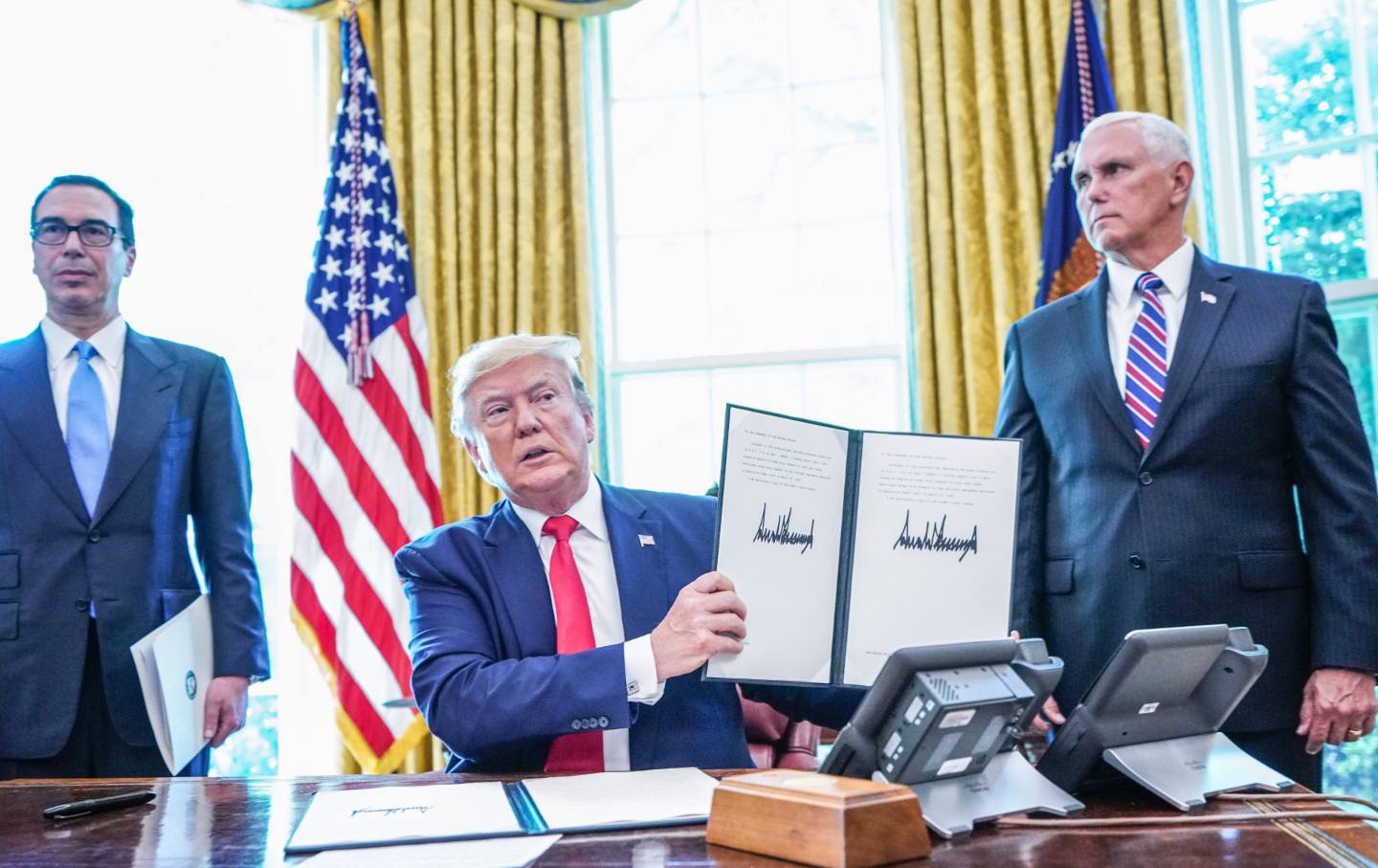
The US strikes on Iran—and the retaliatory Iranian strikes on US military bases in Qatar—have both ended. The symbolic and highly choreographed exchange of fire between the two countries is over, at least for the moment. What now exists could not be called war, but it certainly couldn’t be called peace either.
All sides have stopped firing, but there is no official ceasefire deal or plan to move forward, and military buildups continue. Crucially, President Trump does not appear to have had any legal authority for the American attack; his administration didn’t even cling to the usual fig leaf of the 2001 Authorization for Use of Military Force, which has justified most post-9/11 military action. There has been no major public debate about these strikes.
All of this might look like a new kind of gray area, a dangerous and unpredictable limbo. But when it comes to Iran, and especially US policy toward Iran, this state of affairs has actually been the status quo for a very long time.
The United States has never declared war on Iran. Yet, ever since the overthrow of the US-backed shah in 1979, the United States has continuously been at war with Iran. The Iranian state and Iranian citizens have existed for decades under a state of perpetual sanction and hyper-surveillance that not only limits sovereignty and, to an extent, legal personhood but also, as we have just seen, pre-justifies and renders unremarkable any act perpetrated against Iran by the US.
As any Cuban will tell you, this is not a wholly novel state of affairs. But sanctions against Iran, especially in the post-9/11 era, have taken on a unique character. Unlike Cuba, its diaspora in America is not so politically organized and important that some accommodation must be made for economic migrants. Unlike China, Iran’s economy is not so large that trade with it cannot be avoided. And unlike Russia, it is not a large enough global power that sanctions can be basically ignored.
The layers of sanctions built up against Iran since 1979 are almost a test case for how maximally a country can be coerced. They add up to an assertion not just that the Iranian state is an enemy of the United States, and not just that there are certain technologies that must be kept from that country for strategic reasons, but that every institution of the Iranian state is somehow nefarious and illegitimate.
The issue at hand is unconnected to the nature of the Islamic Republic. The United States has no problem with authoritarian, theocratic states that discriminate against women and exert regional influence by backing Islamist non-state actors; after all, every one of America’s precious Gulf allies meets that definition. What is really at the core of American policy regarding Iran is that in 1979, an American-backed dictator was overthrown, and we have never forgiven Iran for it.
Because of this, the Iranian state that exists and the people who work for it or are forced to interact with it are all defined as implacable enemies in the eyes of the US. There has been no carve-out in the sanctions regime, or in the designation of the Islamic Revolutionary Guard Corps (IRGC) as a terrorist organization, for the ordinary citizen—no exemption for the uninvolved, no possible path out for the nonideological or those who just interact with the government to get by. There is not even a meaningful interrogation of what the Islamic Republic’s elites actually do with their money.
Current Issue

The repeated assertion that “the regime” or the IRGC or “the mullahs” or the nuclear program are somehow separate things from the sovereign country that exists between Turkey and Pakistan further blurs the line between a nation-state whose government the United States does not like and something more akin to a terrorist organization or narco-trafficking cartel. The Islamic Revolutionary Guard Corps has already—uniquely in the world for a government institution—been designated by the US as a foreign terrorist organization in toto. The IRGC is a second parallel political army that operates transnationally, closely cooperates with non-state groups in Iraq, Yemen, and Lebanon, and doesn’t even have “Iran” in the name, all of which are used to justify defining the organization as legally equivalent to ISIS, but it is still a branch of the Iranian military. It is part of the state.
This designation goes further than claiming that Iran is a state sponsor of terrorism. It asserts that the Iranian state is itself a terrorist organization, and that all public revenues can be seen as aiding terrorism. The oil and construction sectors in Iran, where the IRGC invests heavily, have both drawn scrutiny from the US Treasury Department’s Office of Foreign Assets Control as potential sources of terrorist money laundering, which might seem reasonable until you realize that those sectors constitute almost all real economic activity in Iran. The entire Iranian economy can thus be cast as a criminal enterprise.
American sanctions touch every aspect of daily life for Iranians, even if they leave the country. Obviously, an American cannot sell military spare parts or missile technology to Iran, but this ban extends to civil aviation and spare parts for Iran’s aging fleet of 1970s US-made airliners. Consequently, Iran has one of the worst civil aviation safety records in the world. Medicines are difficult to import, and access to any international financial services is a nonstarter. Iran has been disconnected from the SWIFT bank payment system, and Iranian debit cards will work only in a handful of countries, all of which are under threat of US financial sanctions for the infraction. Perhaps some sanctions against Iran’s central bank or armed forces banks could be expected, but sanctions and the associated accusations of terrorist financing extend to everything from Iran’s state-backed mortgage provider and tourism industry financing bank to anyone who has even a tangential relationship with those institutions.
It is not just Americans or people subject to American jurisdiction who have to look out; any person with third-party connections to Iranian businesses or entities needs to comply or risk serious legal consequences, including possible designation as a material supporter of terrorism. A Swedish importer can buy Cuban rum, but an Indian merchant sailor who worked as a cook on a ship that serviced an Iranian-owned oil field in the Persian Gulf could be designated as a material supporter of terrorism and permanently barred from entry to the United States.
At this point, the rational thing to do for a young Iranian who wants a better life would be to emigrate, but even that is increasingly impossible. Even before Trump’s new Muslim ban closed the door on virtually any Iranian travel to the US, the Iran Threat Reduction and Syria Human Rights Act of 2012 mandated that any Iranian student who wanted to come to the US to study a subject related to the Iranian energy sector in any way be denied a visa on national security grounds. An Iranian mom who retired from indexing historical documents at Iran’s national museum would be subject to lengthy security screening because she was a government employee, adding years onto the already long wait for a green card.
The result of this situation is that Iran, a large, highly educated, middle-income country, has one of the weakest passports in the world in terms of mobility.
“Sanctions are warfare” has been a slogan for anti-war activists for years. Sanctions are a type of economic assault, but the Iran-Israel war, and the American involvement in that war, drives home how casting some states as not-quite-sovereign distorts decision-making around questions of statecraft.
JD Vance’s assertion that “we are not at war with Iran, we are at war with its nuclear program” may sound absurd, but it cuts to the heart of sanctions logic. It speaks to a desire in Washington to separate the Iranian state and Iranian society into various discrete parts, some of which are to be monitored, some punished, and some destroyed.
The assertion that the Iranian state itself is somehow inherently criminal or outside the nation-state system paradoxically makes anything affiliated with even the most mundane government institution a legitimate target for the most cloak-and-dagger methods of attack. Car bombs, sleeper cells armed with covertly assembled drones, and spies were used to murder university faculty, attack the Tehran municipality building, and target Iran’s head nuclear negotiator, who was preparing for a sixth round of talks with the United States—talks that Iran has signaled it is open to resuming. The Israeli attacks targeted not just missile factories and air force bases but also public electrical substations and Shahid Beheshti University, one of Iran’s top research universities. Every aspect of the Iranian state was flattened together into one list of targets. Evin Prison was bombed, killing at least 71 people, including detainees and their visiting family members.
Popular
“swipe left below to view more authors”Swipe →
The escalation to direct US military strikes on Iran isn’t a fever breaking; it is not a harrowing close call that will cause political leadership to come to their senses. The threat of all-out war, of Iranian closure of the Strait of Hormuz, and massive ballistic missile volleys directed at the United States’ Gulf bases would have been a global catastrophe, but it would not have reversed American unwillingness to see the Iranian government as a legitimate actor. Thankfully, Iran and the US took serious measures to avoid war with each other. Significant evidence has emerged that the direct Iran-US engagement was heavily telegraphed and had minimal military effect.
So where does this leave us? In reality, things are basically the same as always, except that direct physical violence inside Iran directed at Iranian state institutions is now just another tool in the toolbox. Again and again, American sanctions policy has ratcheted up, to a position where the issue at hand is whether Iran will exist as a sovereign and independent state at all. Will it have scientists, students who study internationally, universities that are allowed to exist, banks that can engage in international commerce, or even control over its own airspace and borders?
This is how it’s always been—only now, the violence is physical, and people die directly from bombs rather than passively from embargoed medicines. In other words: We have always been at war with Iran.
More from The Nation
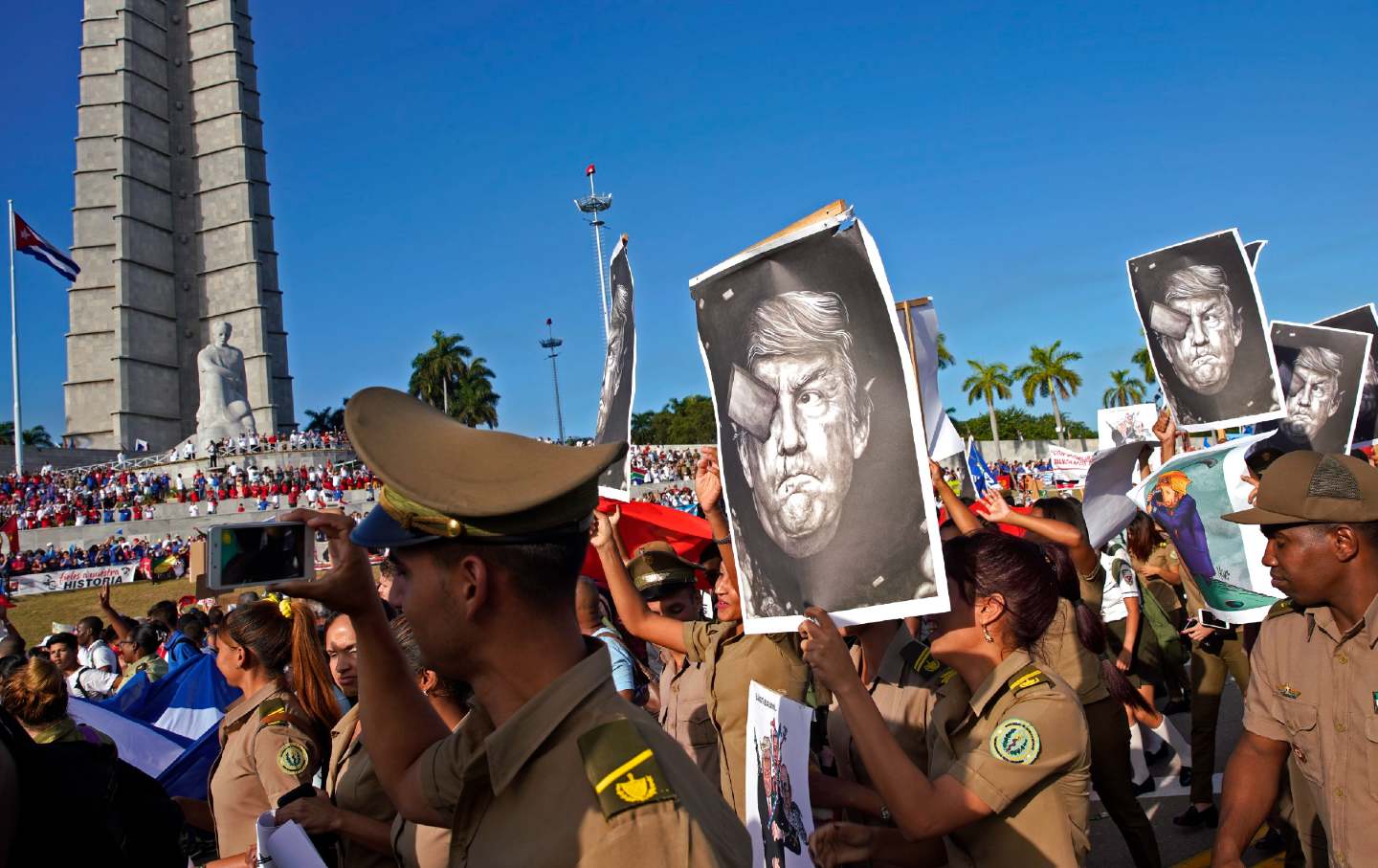
The danger of “maximum pressure” vs. the promise of “pragmatic engagement.”
Peter Kornbluh
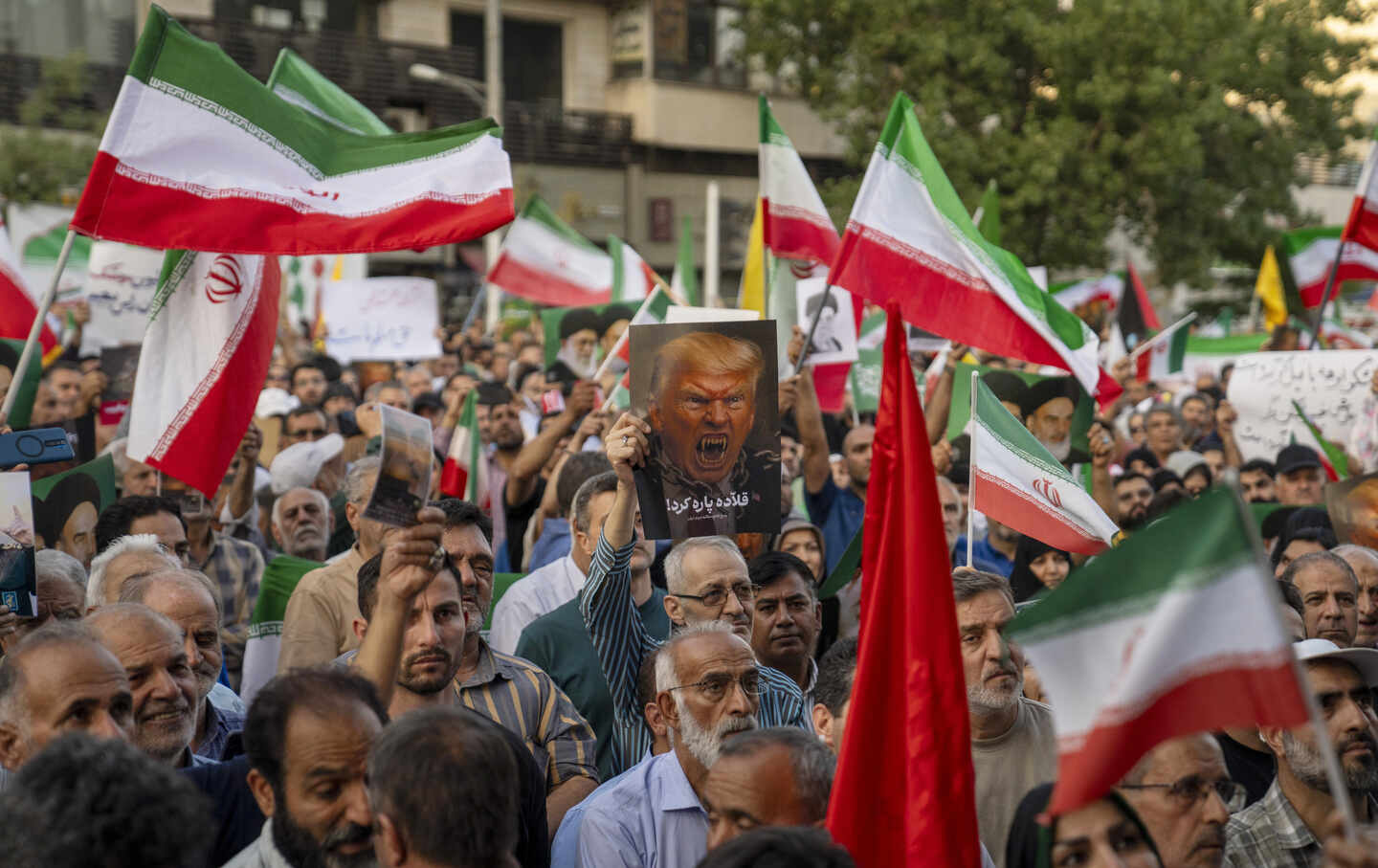
Imperfect as they were, our founding fathers asserted that liberty and human dignity are fundamental human values. A war with Iran repudiates them.
Nader Terani
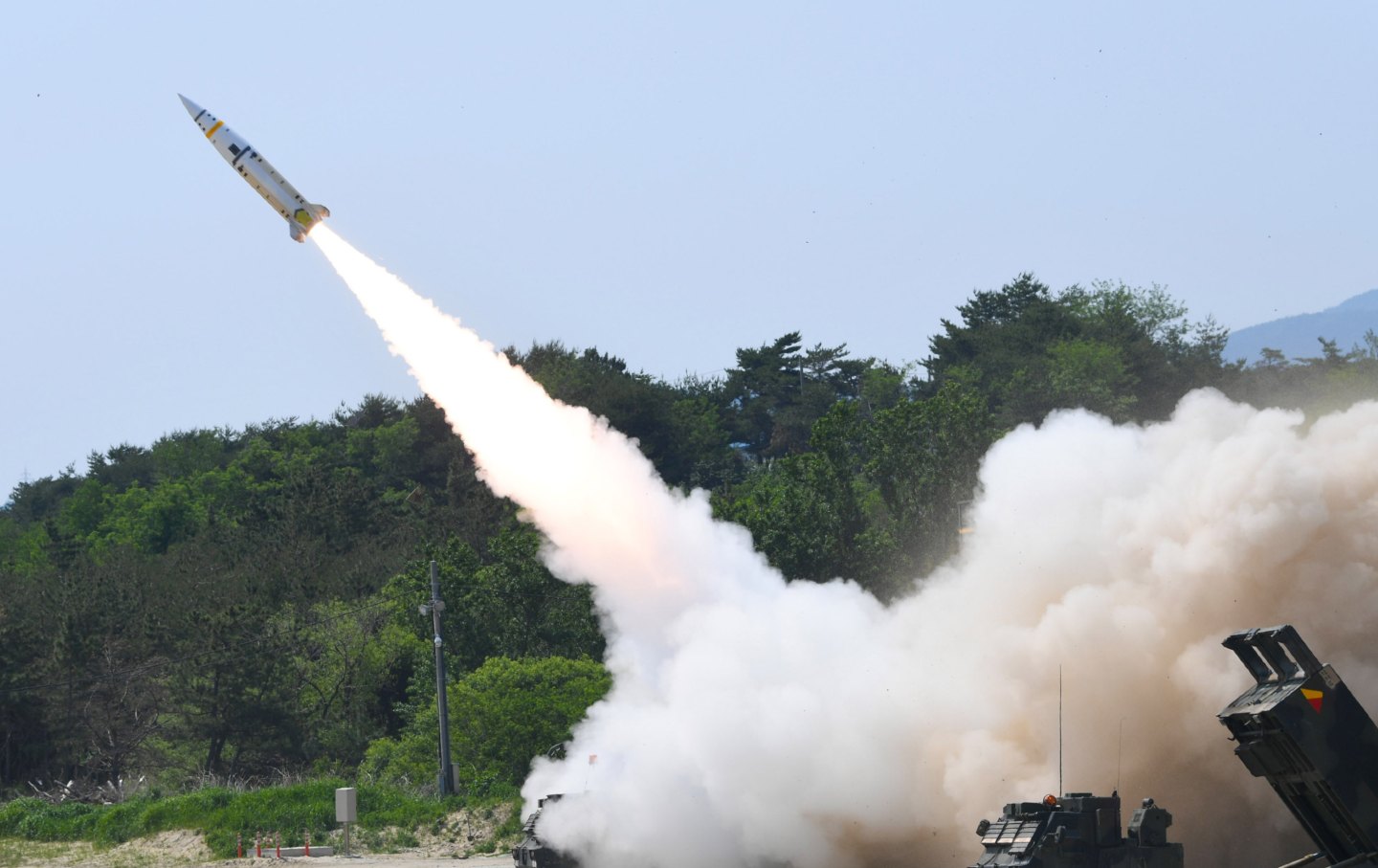
Yet mainstream US media outlets and partisan politics are routinely oblivious to threat of oblivion.
Norman Solomon
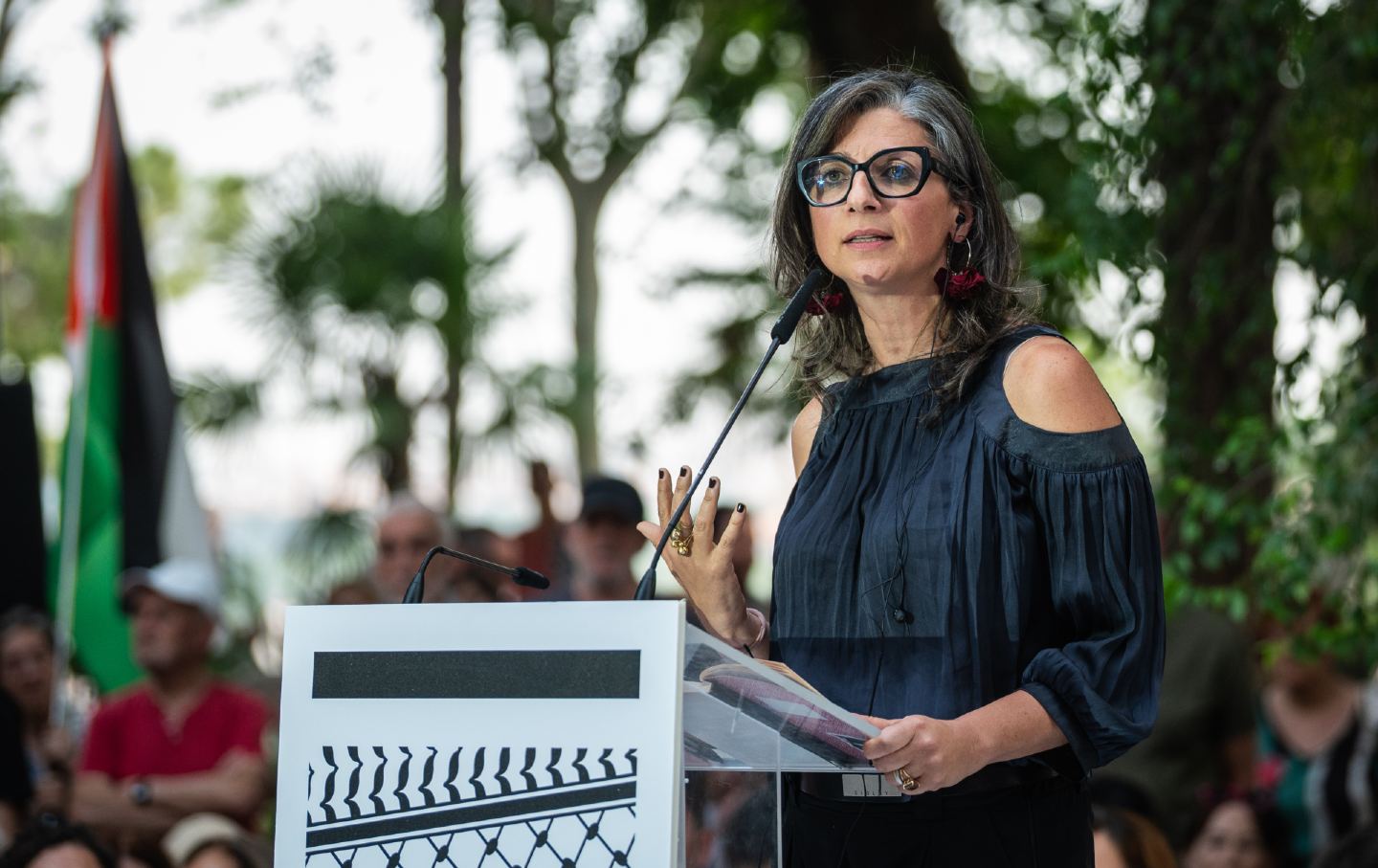
Marco Rubio tramples on law, justice, and truth.
Richard Falk
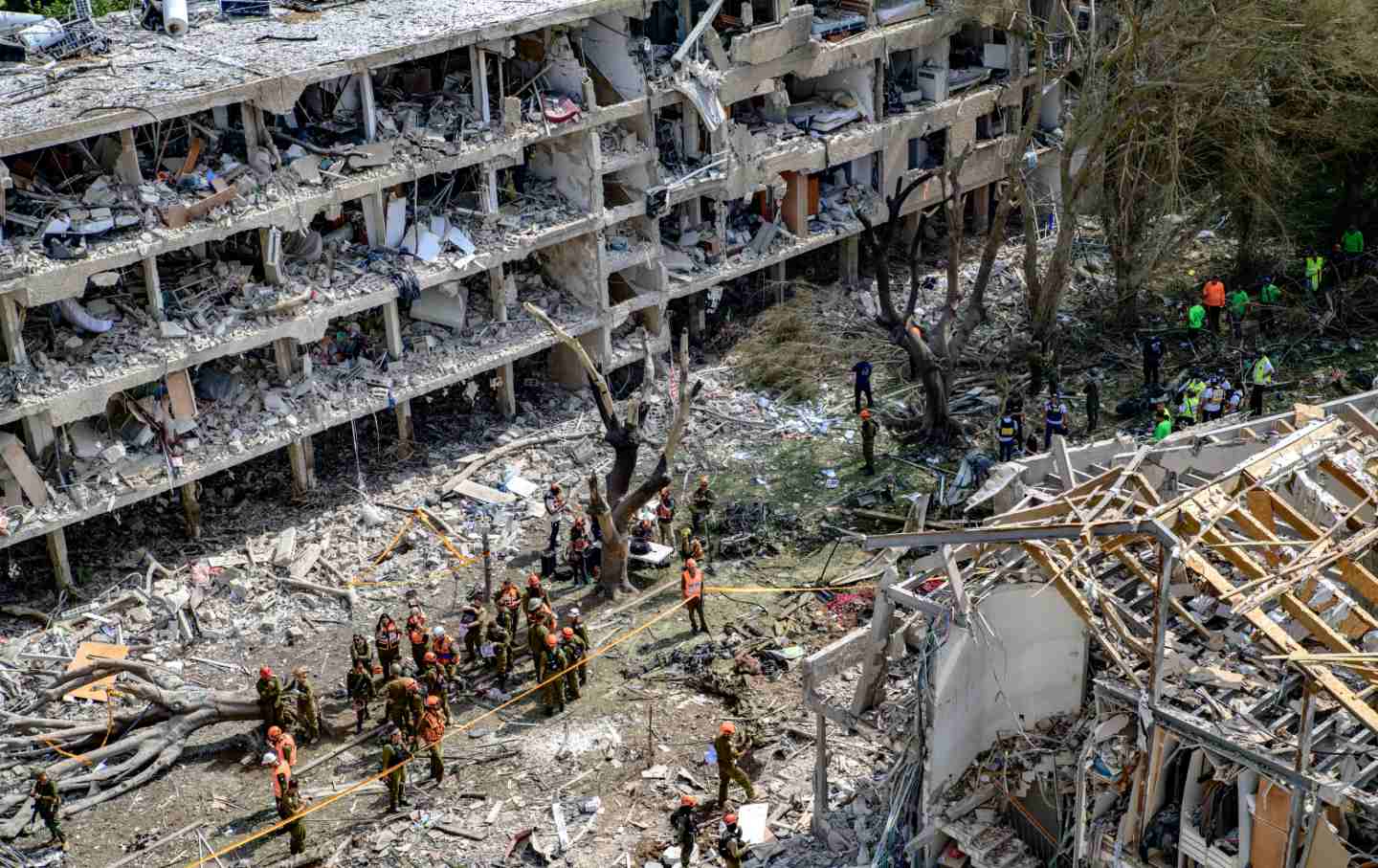
What was true before is still true now: There is no military solution to this conflict. Only diplomacy and a commitment to peace will work.
Hillel Schenker


